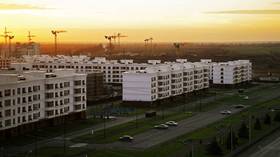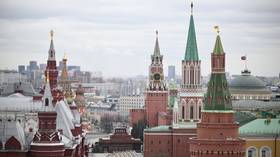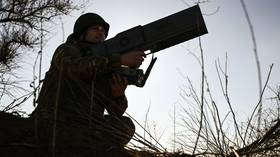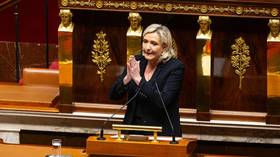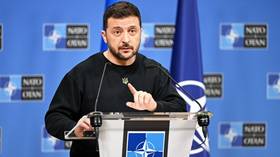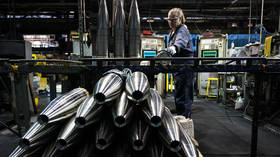German building giant probed over Mariupol reconstruction
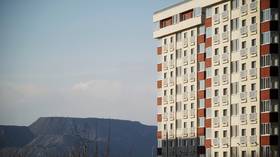
A preliminary investigation has been opened into the building materials giant Knauf following reports of the alleged use of its products in the reconstruction of the city of Mariupol, the prosecutor’s office in the German city of Wurzburg told RIA Novosti.
Earlier this month, German public outlet ARD claimed that some of the products manufactured by the country’s businesses may be used in the ongoing rebuilding of the Russian Sea of Azov city which was heavily damaged during a siege in 2022.
“It’s important to note that there is currently no initial suspicion of a crime required to initiate a pre-investigation check. Rather, it serves to clarify whether such an initial suspicion exists at all,” Tobias Kostuch, a spokesman for the prosecutor’s office told RIA Novosti on Monday.
On the same day, Knauf announced it was exiting Russia in light of the “current developments” without providing a specific reason for the withdrawal.
A global leader in plaster production, Knauf was one of the Western companies which refused to leave Russia after the Ukraine conflict started in 2022. Last November, Ukraine labeled the firm a “sponsor of war” calling it the “largest German investor in the construction industry in Russia.” The company employs more than 35,000 people around the world and has annual revenue of over $11 billion, according to Forbes.
Its founder, Nikolaus Knauf, served as an honorary Russian consul for over two decades. He retained his post after Crimea rejoined Russia following an armed coup in Kiev in 2014. In 2018, he called the Western sanctions imposed on Russia “terrible.” However, earlier this month, he told ARD that he opposes Moscow’s military operation, and that his company complies with EU restrictions, only using its Russian branch to provide goods “exclusively for the Russian market.”
The firm revealed it intends to “transfer the entire business in Russia, including raw material extraction, manufacturing, and sales to local management to preserve the jobs of more than 4,000 employees in the future.”
The move is pending approval by Russian authorities, who have already been informed of the plans, according to deputy Trade and Industry Minister Viktor Evtukhov. Commenting on the firm’s decision to “transfer” its assets the minister referred to this word as “not appropriate.”
“If for some reason a company leaves the jurisdiction of the Russian Federation, then a sale takes place. Another thing is that you can sell an asset for any price, but not more than 50% of its market value,” Evtukhov said.
Under existing laws, firms leaving Russia are obligated to sell their Russian assets at a 50% discount and pay a mandatory contribution to the Russian budget, amounting to at least 10% of half the market value of the company’s assets in the country.
Correction: an earlier version of this article erroneously stated that Knauf may have been ‘actively involved’ in the reconstruction of Mariupol. This has since been corrected to reflect that while its materials seem to have been used, the company’s active involvement was never implied.
